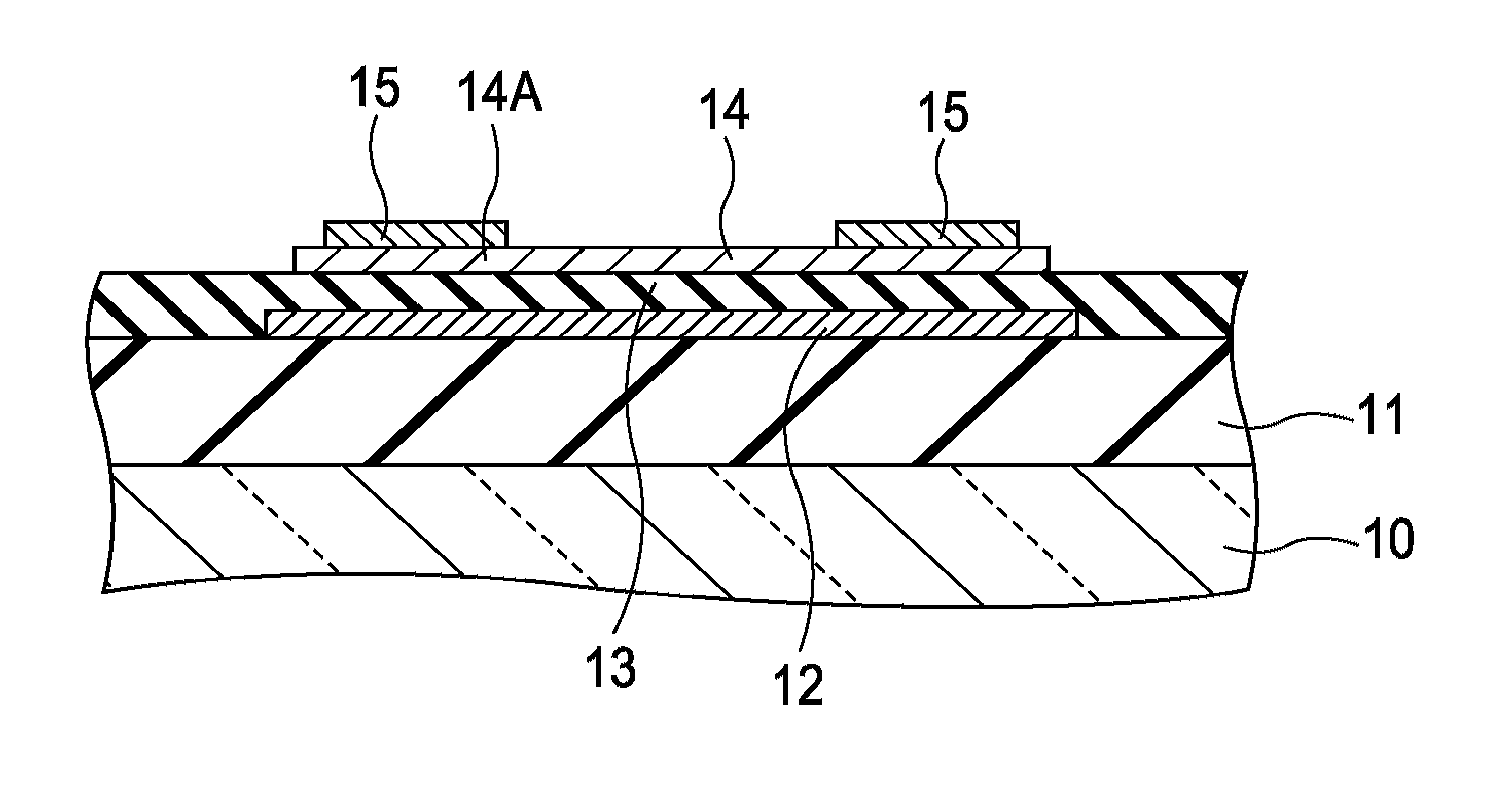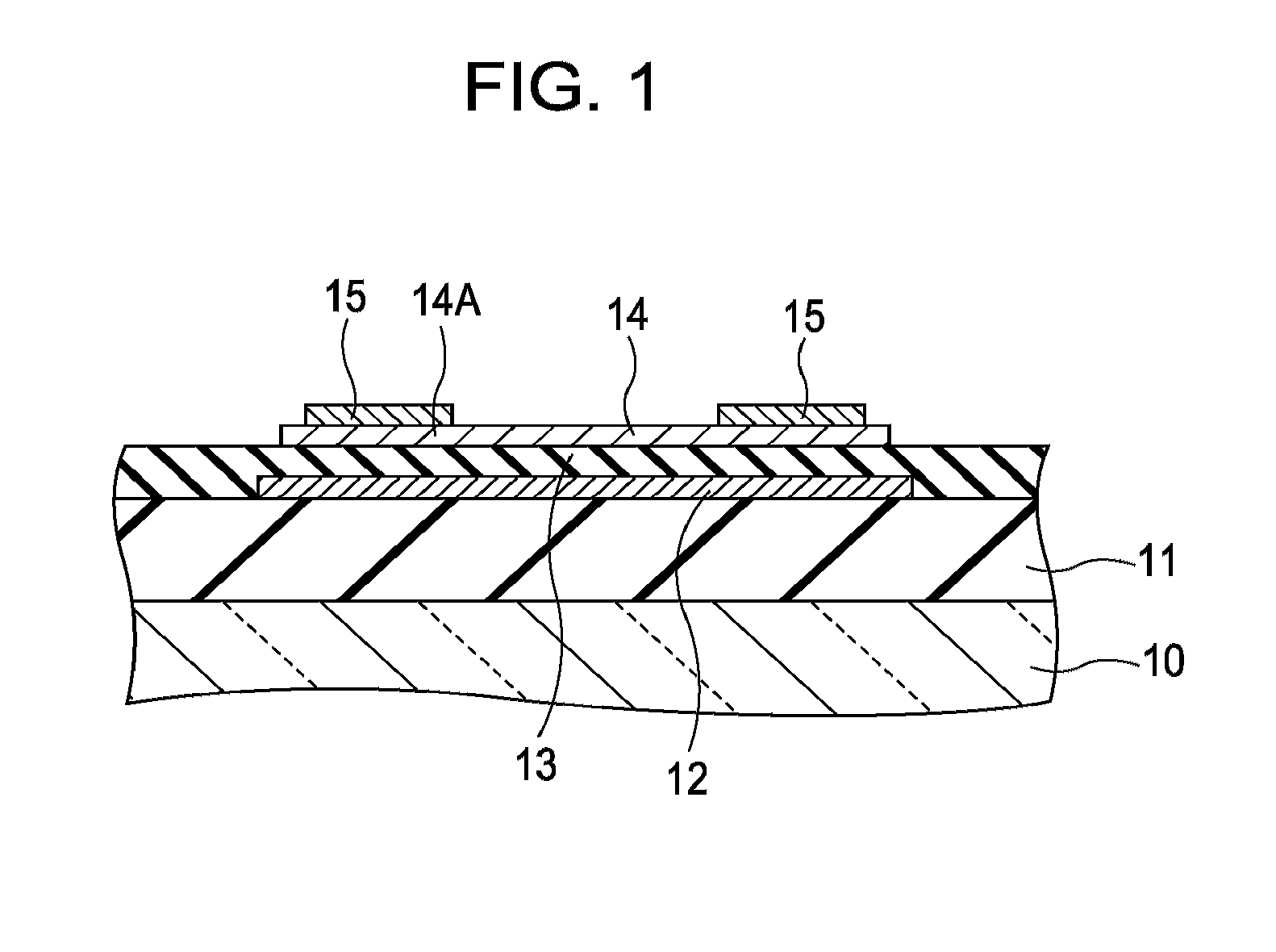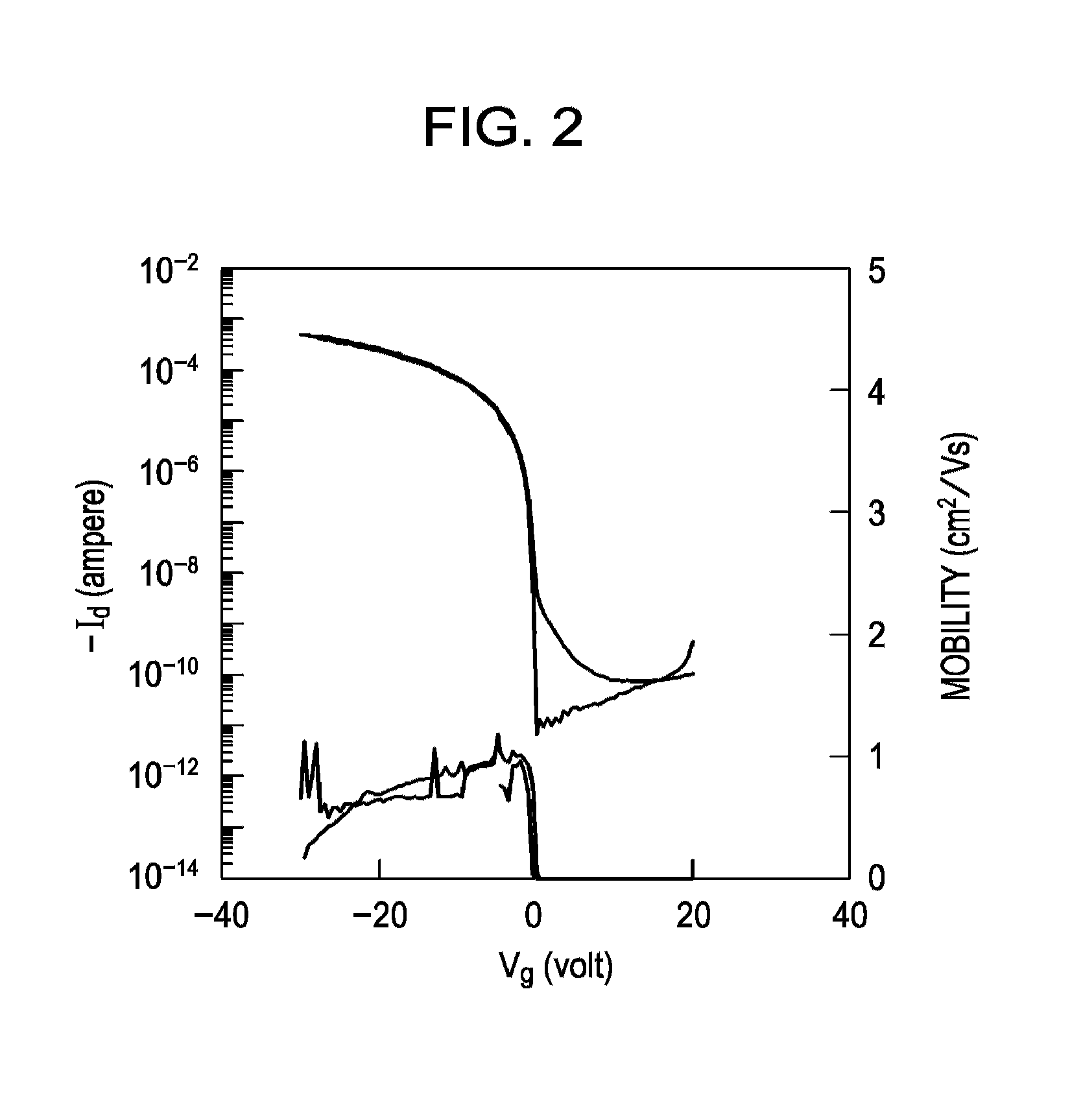Semiconductor device, method of manufacturing the same, and method of forming multilayer semiconductor thin film
a semiconductor and thin film technology, applied in the direction of semiconductor devices, thermoelectric device junction materials, electrical apparatus, etc., can solve the problems of difficult, for example, to precisely adjust the physical properties according to processes, and low molecular design freedom, so as to improve and adversely affect the characteristics of semiconductor devices
- Summary
- Abstract
- Description
- Claims
- Application Information
AI Technical Summary
Benefits of technology
Problems solved by technology
Method used
Image
Examples
example 1
[0115]Example 1 relates to semiconductor devices according to the first and second embodiments of the present invention, methods of manufacturing the same, and methods of forming a multilayer semiconductor thin film according to the first and second embodiments of the present invention. A semiconductor device (specifically, field-effect transistor (FET), more specifically, thin-film transistor (TFT) of Example 1 includes a gate electrode, a gate insulating layer, source / drain electrodes, and a channel-forming region that are disposed on a base, in which the channel-forming region is composed of the dioxaanthanthrene compound represented by structural formula (1) described above, and the gate insulating layer is composed of PaMS, wherein at least one of R3 and R9 represents a substituent other than hydrogen. Furthermore, a semiconductor device of Example 1 includes a gate electrode, a gate insulating layer, source / drain electrodes, and a channel-forming region that are disposed on a ...
example 2
[0137]Example 2 is a modification of Example 1. In Example 2, as the dioxaanthanthrene compound, 3,9-bis(4-propylphenyl)-peri-xanthenoxanthene [PXX—(C3Ph)2] represented by structural formula (11) of Example 12 described later, in which R3 and R9 are each an aryl-alkyl group, was used. Tetralin was used as the solvent. The mixing ratio of PaMS to PXX—(C3Ph)2 was 1:1 (weight ratio).
[0138]
[0139]As in Example 1, a semiconductor device was fabricated, and as in Example 1, an evaluation sample was fabricated. The gate voltage dependence of the current-voltage curve between source / drain electrodes of the resulting sample was measured. The results thereof are shown in FIG. 4. As is evident from FIG. 4, current modulation occurs in response to the change in the gate electrode, thus confirming the characteristics of a transistor. Furthermore, as shown in FIG. 4, the mobility is 1 cm2 / Vs. The conditions are shown below.
[0140]Channel length (distance between source / drain electrodes): 50 μm
[0141...
example 3
[0143]Example 3 is also a modification of Example 1. In Example 3, an evaluation sample was fabricated as in Example 1 except that a thermal oxide film (SiO2 film with a thickness of 150 nm) was formed instead of forming an insulating film composed of PVP on the surface of the silicon semiconductor substrate.
[0144]Furthermore, as Comparative Example 3, an evaluation sample was fabricated in the same manner as that of Example 3 using a solution obtained by dissolving only PXX—(C2Ph)2 in tetralin.
[0145]The gate voltage dependence of the current-voltage curve between source / drain electrodes of the resulting sample of each of Example 3 and Comparative Example 3 was measured. The results thereof are shown in FIG. 5. As is evident from FIG. 5, current modulation occurs in response to the change in the gate electrode, thus confirming the characteristics of a transistor. In FIG. 5, “A” indicates the results of Example 3 and “B” indicates the results of Comparative Example 3. In the sample o...
PUM
 Login to View More
Login to View More Abstract
Description
Claims
Application Information
 Login to View More
Login to View More - R&D
- Intellectual Property
- Life Sciences
- Materials
- Tech Scout
- Unparalleled Data Quality
- Higher Quality Content
- 60% Fewer Hallucinations
Browse by: Latest US Patents, China's latest patents, Technical Efficacy Thesaurus, Application Domain, Technology Topic, Popular Technical Reports.
© 2025 PatSnap. All rights reserved.Legal|Privacy policy|Modern Slavery Act Transparency Statement|Sitemap|About US| Contact US: help@patsnap.com



